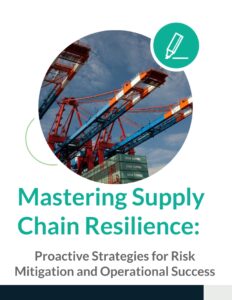From Mediocre to Exceptional: The Qualities that Define Great Leadership
Great leaders are also influential. They will lead by example, demonstrate integrity, and display empathy to others. Lastly, they have the ability to recognize success while making hard decisions. These are just some in a long line of qualities that great leaders possess. Now, you may be asking, how does one make the transition to becoming a great leader?
The Path to Leadership
Entrepreneurs often find inspiration from influential people in their lives. For some, this can be a close family member whose passion and entrepreneurial spirit is inspiring; while for others, it could be a former boss, public figure, or leader in their line of work.
After changing career paths, entrepreneurs may bring their experiences from the corporate world and imbed them into their businesses. This can be both good and bad. It may encourage someone to be the leader they never had but always needed. Entrepreneurs with this mindset will lead from a place of experience. No matter what strategy entrepreneurs decide to choose, it is often directly related to the reasons they started their own company.
Why?
The birth of a good business begins with WHY. Do you know what your why is? According to a survey from HubSpot, a marketing automation company, the top reason people start a business is their desire for more ownership (Forbes). Becoming an entrepreneur not only gives you the ability to control the work you produce but also lead your team. When starting a company for the wrong reason, such as being driven by your desire to make money, you can lose sight of the impact your business can have on others. To forget your why or start it for the wrong reasons will get you caught up in the weeds of the company as opposed to leading it. This can lead to feelings of exhaustion, frustration, and burnout. To prevent this, simply focus on who you want to help and how you want to help them. For more insight on being an effective leader, download our exclusive member e-book “How to Avoid Choosing the Wrong Software Solution,” which offers ways to successfully manage your business.
A true leader is thinking about their level of impact and the number of businesses they could help every day. They are passionate about the work they are doing and believe wholeheartedly in the mission and values of their company. Effective leaders and entrepreneurs alike make a positive difference in the world. They don’t just talk about making a change; they act on it.
Top Characteristics of a Good Leader
These are some of the top characteristics a good leader should possess:
1. Integrity
Integrity in leadership means being honest, trustworthy, and reliable. This means practicing what you preach and being able to acknowledge when you are at fault. How can you expect your team to be honest when you aren’t leading by example? Leaders with excellent integrity do a wonderful job in gaining the trust of their employees and inspiring them to do better. As a result, integrity in leadership generates a better work environment, stability, and appreciation for what your employees do.
Example: Being dependable and following through on commitments is a great way to show integrity in the workplace.
2. Empathy
Empathetic leadership means having the ability to realize someone else’s needs and being conscious of their emotions. Empathy in leadership is crucial because it helps leaders to grow and form a human connection with those they lead. It promotes leaders to comprehend the root cause behind poor performance. Although, in some cases, even good leaders can lose focus or forget to empathize with their employees because they need to achieve a specific goal, no matter the cost. That is why it’s so important to listen attentively, be present, and support your team.
Example: When having a meeting, provide your full attention, being curious about their lives and interest, and always provide your employees with constructive feedback.
3. Effective Communicator
Effective communication and leadership are closely connected. When communication is clear, it gives the team confidence that you are in control, your plan is thought out, and you know what you’re doing. The ability to be clear and concise with your communication can impact the success of your business. For this reason, effective communicators in leadership are being able to listen and respond to messages clearly and effectively to minimize the original intended message from being distorted.
For example: Actively listening to your employees, addressing it as a group, and being clear where you stand on the matter, benefit everyone. Ignoring matters won’t make them go away. Communicate in a way that your employees can understand what you expect from them.
4. Accountability
Accountability is the responsibility of a person or company for their actions such as accepting responsibility when things go wrong and being transparent. Accountability is essential in leadership because it empowers leaders to be in control of their actions. It provides opportunities to do things differently and take responsibility for your actions or inactions. It gives leaders and employees a stronger sense of ownership over their work.
Example: Taking ownership for mistakes and being transparent about what happened is a form of good leadership.
5. Philanthropy (giving back to their community & employees)
Being philanthropic and an effective leader can be hard to find. The guiding principles of philanthropy are participating and giving back to causes you believe in. For some, being philanthropic is not guided by causes they truly believe in and instead, reducing taxes, or giving misleading perceptions about their company. It’s no longer acceptable to only donate money or make a statement; people are looking for action.
Being and leader and a philanthropist is about making a lasting impact on marginalized circumstances and genuinely supporting causes to leave it better than you found it.
Example: It’s one thing to say you support women in leadership; It’s another to hire women for your leadership positions.
It’s Really About Action
You must ask yourself. Is a leader that supports women’s equality a good leader and a true philanthropist if they aren’t promoting, paying, or treating their female employees the same as their male counterparts? We can rectify this by being intentional when we hire, promote, and delegate visible roles, and who the qualified candidates are. Have you truly considered women when you think about these business decisions? If you find yourself unsure about the answer to this, then this might be a good time to reevaluate your hiring and promotions strategies.
There is a consistent value trait among notable leaders in Fortune 500 organizations – giving back to the community. Here are some leaders that embed philanthropy into their lives.
Leaders Behind the Industry
-
Warren Buffet is the world’s most generous man; he has given away most of his fortune to charity. The 89-years old billionaire has followed through and gave away nearly 99% of all his fortune to philanthropic causes before he dies. He has donated most of his money to Berkshire Hathway Inc, BRKA.N, and the Bill & Melinda Gates Foundation.
Lifetime Giving: $37 billion
-
MacKenzie Scott is an American novelist and philanthropist. Her net worth is $60 billion, and she is the third wealthiest woman in the world. She has given surprise gifts to colleges and universities that many have never heard of, intending to serve minorities and underserved students. She has donated to historically black colleges and universities, groups supporting women’s rights, LGBTQ+ equality, and the fight against climate change. Lifetime Giving: $6 billion
-
Bill and Melinda Gates The world’s most recognizable philanthropic couple, with a net worth of over $130 billion; Bill is also the founder of Microsoft. A majority of their philanthropic work is through their foundation. Their foundation is fighting inequity around the world by promoting gender equality, global development program, global growth & opportunity program, global health program, and global policy & advocacy.
Lifetime Giving: $50 billion
Success is not what you gain but what you leave behind. These five remarkable leaders have done just that. Although these leaders are all different, they all share the same characteristic, to make this world a better place.
Successful leadership isn’t just handed down to a specific person or given after displaying an exemplary action. Successful leadership is built over time. Especially with the transformation from an in-person working environment to a remote working environment, leaders needed to step up during this time. They needed to find new ways to communicate, support, and collaborate with employees virtually. (Link)
How does this appear in the business?
1. Holding each other accountable
2. Having a support system outside the work environment (supporting each other’s accomplishments and celebrating them)
3. Being a part of a mastermind group
4. Working on your emotional intelligence
We are better together. We rise and fall together. We encourage teamwork, especially in a remote environment. What can you do to become an effective leader?
5 Qualities of Effective Leaders: (LINK )
1. Team Building
2. Self-assessment
3. Risk-Taking
4. Vision and goal setting
5. Communication
About the Authors
Cornerstone Paradigm Consulting is an industry-agnostic business operations consulting firm that helps companies fix what is not working for them.
CrewBloom is a remote recruitment agency that goes against the traditional approach to hire by utilizing international talent for day-to-day operations and HR tasks.






